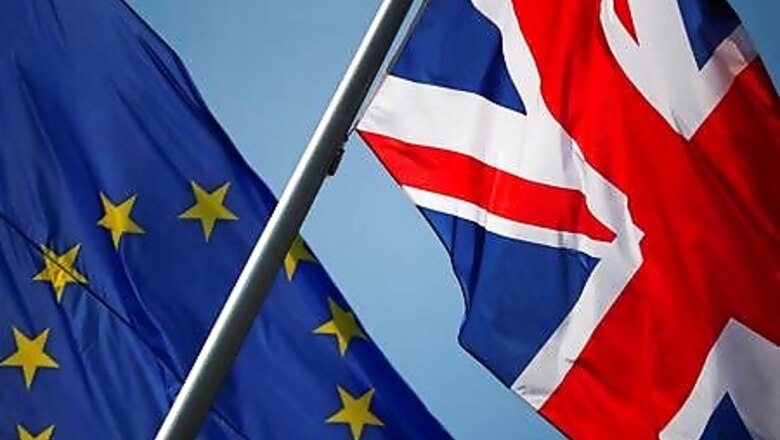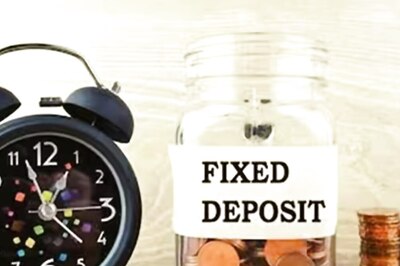
views
LONDON: Economists stuck to their forecasts on Monday that Britain and the European Union would agree some sort of post-Brexit trade deal, taking the view that London is likely toughening its rhetoric in a bid to pressure Brussels into a compromise.
The talks are back in crisis and the pound is bearing the brunt on renewed fears of a disorderly exit from the EU after the British government was reported to be planning legislation to override parts of the Withdrawal Agreement it signed in January.
“Rhetoric in past few days has been ramped up, but we don’t think this materially changes the prospect of a deal being reached before the end of the year”, Chris Graham, Europe Economist at Standard Chartered, said.
He added his team was sticking to probabilities of a deal at 50%, no-deal at 30% and an extension of the talks to 20%.
Petr Krpata, Chief EMEA FX and IR Strategist at ING, also stuck to his overall forecast.
“Yes, the latest developments definitely increased the chance of a no-deal Brexit, but still no deal is not our base case,” he said, giving a 50% to 60% probability to a deal.
Economists at Commerzbank, Rabobank and Nomura also kept their forecasts that a deal was most likely scenario.
While there is an expectation that Prime Minister Boris Johnson will not go as far as to “eliminate the legal force of parts of the withdrawal agreement”, a possibility reported by the Financial Times, economists said they had to take that into account.
“While our base case remains a semi-managed hard exit (60% probability) which involves some modest stop-gap measures to manage the transition from EU to WTO rules for trade, the rising tensions could limit the breadth of any such measures,” said Kallum Pickering, a senior economist at Berenberg.
Moving forward however, the perception could quickly deteriorate if London and Brussels keep up their tug of war.
“It is almost inevitable that the perceived probability of ‘no deal’ will escalate over the coming weeks”, Goldman Sachs analysts wrote in a research note this morning in which they maintained their expectations of “thin” free trade agreement.
Disclaimer: This post has been auto-published from an agency feed without any modifications to the text and has not been reviewed by an editor




















Comments
0 comment